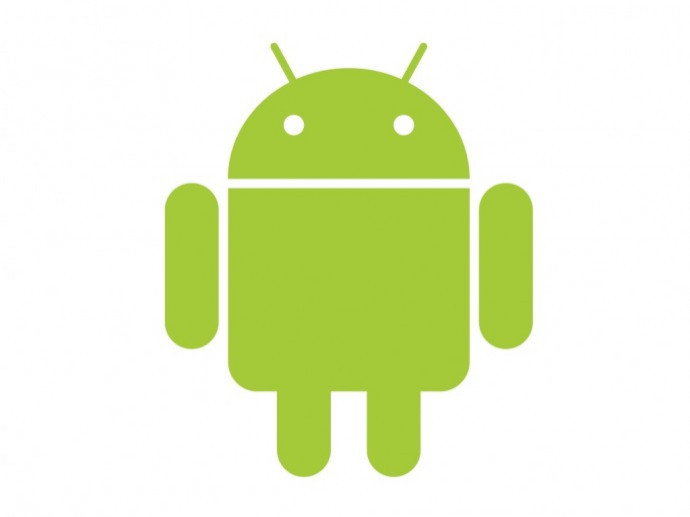Android To Grow More Than Twice Its Rivals in 2011

Google's mobile operating system Android will continue to grow at more than twice the rate of its major smart phone competitors in 2011, according to latest estimate from market research firm Canalys.
The growth will come despite market concerns over platform fragmentation and the arrival of the iPhone 4 on Verizon in the US.
According to Canalys, the Google-backed platform claimed a 25 percent share of the worldwide smart phone market in the third quarter, with over 20 million shipments of Android-based smartphones worldwide.
'The growth of Android has been phenomenal, but so too has the number of related devices launched with different hardware and software specifications,' said Canalys Principal Analyst Chris Jones. 'This has led to the market perception of it as a fragmented platform, though we believe that growth will continue as the pace of Android OS upgrades slows.'
'Fragmentation affects all OS platforms, though it is particularly visible with Android due to the fast pace of upgrades that has characterized its growth,' said Jones. 'The problem has been less pronounced on competitive platforms, such as Apple's iOS, as devices have been able to support the iOS 4 upgrades since the iPhone 3G. Nokia has also sought to minimize its fragmentation issues by utilizing the cross-platform Qt framework.'
Canalys said vendors working on Android have leveraged the open source platform to push prices down and bring smart phones to the mass market. As a result, Android shipments grew more than 1,000 percent through the first three quarters of 2010 over the same period in 2009.
The platform has benefited established vendors, such as Samsung and HTC, but also enabled PC vendors, such as Acer, to enter the market with a broad product range spanning smart phones and pads. Another vendor, Motorola, has been currently making only phones based on Google's Android operating system.
'Vendors are trying to differentiate further on the hardware front, with faster and more powerful processors, as well as larger screen sizes,' said Canalys Senior Analyst Daryl Chiam. 'Last week, LG announced the first smart phone to support a dual-core processor, while Acer and Samsung showcased smart phones with screen sizes of 4.8 and 4.5 respectively.'
'With Android's momentum expected to stay strong, the installed base of Android-based smart phones and pads will rapidly increase - good news for developers,' said Chiam.
Recently, Market research firm ComScore has said in a report that Android has a 26 percent market share in the U.S., snatching the second position after Research in Motion's (RIM) BlackBerry while Apple was relegated to the third spot with 25 percent market share.
RIM commands the market leadership with a 33.5 percent share. Microsoft and Palm were at distant fourth and fifth positions with market share of 9 percent and 3.9 percent respectively, according to comScore.
Looks like the Android and Apple enthusiasts will now have a field day defending their favored gadgets, but if you go by most analysts it's eventually Android that will romp home with the trophy.
Analysts have said that Android would eventually overtake Apple's iPhone, which uses the company's proprietary iOS, because of Android's widespread adoption among so many manufacturers, such as Samsung, LG, Motorola, and HTC. Apple is the only maker of the iPhone, which competes solely in the high end of the smartphone market, says InformationWeek.
Android, which Google licenses to manufacturers for free, is a mobile operating system initially developed by Android Inc. Android was bought by Google in 2005.
Since the launch of the original Android platform in September 2008, many versions have followed. Gingerbread (Android 2.3) is already Google's eighth update, with its forthcoming Honeycomb (Android 3.0) pad-focused release set to appear on devices in coming months.
Unit sales for Android OS smartphones ranked first among all smartphone OS handsets sold in the U.S. in the second and third quarters of 2010 with a third quarter market share of 43.6 percent.
The platform's rapid evolution has required increased resources from both device vendors and application developers to support the operating system.
'The need to differentiate has pushed vendors to create customized user interface overlays for their Android devices,' said Jones. 'As additional investment is required to ensure compatibility with each operating system upgrade, this has hampered vendors' efforts to stay up-to-date with the latest Android iteration on current devices.'
The following table shows worldwide smart phone shipment estimates by vendors of various operating systems with their respective market shares. In the table, other handset alliance (OHA) stands for Android.
OS Vendor | Q3 2010 Shipments | Market Share (%) |
Symbian | 29.9 million | 37.0% |
OHA | 20.3 million | 25.1% |
Apple | 14.1 million | 17.4% |
RIM | 12.4 million | 15.4% |
Others | 4.1 million | 5.1% |
Total | 80.9 million | 100.0% |
Source: Canalys Estimates | ||
© Copyright IBTimes 2024. All rights reserved.





















